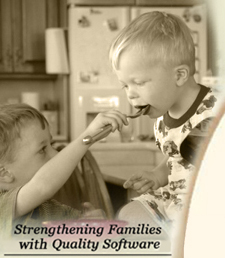
|
|
|

|
|
Volume II
|
January 15, 2008
|
|
|

|
What Iowans Should Know About Mormons
The Wall Street Journal
By Naomi Schaefer Riley
Yesterday, at the end of Mitt Romney's speech, he told a story from the early days of the First Continental Congress, whose members were meeting in Philadelphia in 1774: "With Boston occupied by British troops . . . and fears of an impending war . . . someone suggested they pray." But because of the variety of religious denominations represented, there were objections. "Then Sam Adams rose and said he would hear a prayer from anyone of piety and good character, as long as they were a patriot."
Were Adams alive today, he most certainly would hear a prayer from a Mormon. It is hard to imagine a group more patriotic than the modern Church of Jesus Christ of Latter-day Saints. But there is reason to believe that voters in Iowa and elsewhere will not accept Mr. Romney's invitation -- put forward implicitly in his remarks yesterday at the George Bush Library -- to ignore religious differences and embrace him simply as a man of character who loves his country.
A recent Pew poll shows that only 53% of Americans have a favorable opinion of Mormons. That's roughly the same percentage who feel that way toward Muslims. By contrast, more than three-quarters of Americans have a favorable opinion of Jews and Catholics. Whatever the validity of such judgments, one has to wonder: Why does a faith professed by the 9/11 hijackers rank alongside that of a peaceful, productive, highly educated religious group founded within our own borders?
Many evangelicals in the GOP view Mormonism as "a cult," or at least not a Christian faith. One Southern Baptist leader recently called it the "fourth Abrahamic religion." I remember, a couple of years ago, sitting in on an apologetics class at a Christian high school in Colorado Springs, Colo., and hearing the teacher describe a critical moment in the history of the Muslim faith, when the rock that now sits under the Dome of the Rock in Jerusalem tried to fly to heaven and had to be restrained by Mohammad. Acknowledging that it sounded a little wacky, the teacher added: "Well, it's no stranger than that guy who found golden tablets in upstate New York." The students
laughed uproariously at the reference to the Mormons' founding father, Joseph Smith.
Six years ago, I probably could have counted on one finger the number of Mormons I had met. Having lived most my life in the Northeast, my situation was hardly unique. Then, while researching a book on religious colleges, I decided to spend some time at Brigham Young University in Provo, Utah. In preparation, I picked up "Mormon America: The Power and the Promise" by religion reporters Richard and Joan Ostling. The Ostlings offer a comprehensive account of the church's history and theology, as well as helpful descriptions of the Mormons'
cultural and political outlook. "The onetime believers in plural marriage, considered a dire threat to Victorian probity and the entire nation," the authors write, "have become the exemplars of conservative monogamous family values."
It is hard to disagree. Mormons marry young and have large families. They don't drink, smoke or gamble. The church does not condone homosexuality. Members give at least 10% of their income to the church and often volunteer more than 20 hours a week in some religious capacity. With no professional clergy, the survival of congregations (or "stakes") is entirely dependent on lay participation. All young Mormon men and many women spend two years as missionaries, their travels funded by their own families. The church stocks soup kitchens across the country and internationally (both its own and those of other faiths) with food from its farms and warehouses.
Rather than behaving like an insular cult, members are integrated into the society around them, sending their kids to public schools and assuming leadership positions locally and nationally. Once Mormons complete their missionary service, they are not obliged to proselytize, so having Mormons as neighbors doesn't mean a constant bombardment with invitations to join up.
But many Americans, unless they've actually had a Mormon neighbor, might find all these rosy facts meaningless, feeling deeply uneasy with some of Mormonism's tenets. A lot of what we call religious tolerance depends on social contact, not theological understanding, and there are only about six million LDS members in the U.S., mostly concentrated in the Western states (though increasingly less so). If you press Baptists, they will acknowledge finding Catholics' belief in transubstantiation implausible at best; Jews like me have a little trouble getting over the virgin birth. But we all get along, for the most part, because we know each other and live similar lives as
Americans, whatever faith we profess.
But most Iowans will not meet a Mormon in the next six weeks unless Mr. Romney comes to call -- Mormons make up less than one half of 1% of the state's population. So let me offer a brief snapshot, not in the hope that Iowans will vote for Mr. Romney but in the hope that, if they don't vote for him, their decision won't have anything to do with his religion.
The young men and women at Brigham Young University are among the smartest, hardestworking and most pleasant college kids you will find anywhere. (For better or worse, I have visited dozens of college campuses.) The student body lives by the Mormon principle: "The glory of God is intelligence." Most reside off campus without adult supervision, yet they adhere strictly to curfews, rules about contact with the opposite sex and every other church directive. They are purposeful but seem to enjoy themselves, spending their free time hiking in the sprawling desert. And BYU has America's largest ROTC program outside of our military schools.
This last fact is one I had occasion to think about on my trip. I left for BYU on Sept. 7, 2001, and returned home a week later. On 9/11, the students gathered for a campuswide devotional. The university president tried to comfort the students with "the eternal perspective." My eternal perspective is not the same as theirs, of course. But hearing more than 20,000 young people around me reciting the Pledge of Allegiance made me realize that our temporal perspective is the same. I'm sure Sam Adams would have agreed.
Ms. Riley is the Journal's deputy Taste editor.
|
|
Join the Cook'n Club!
An unbeatable value with exclusive benefits for members only.
Enjoy articles like this and many other benefits when you join the Cook'n Club.
|













